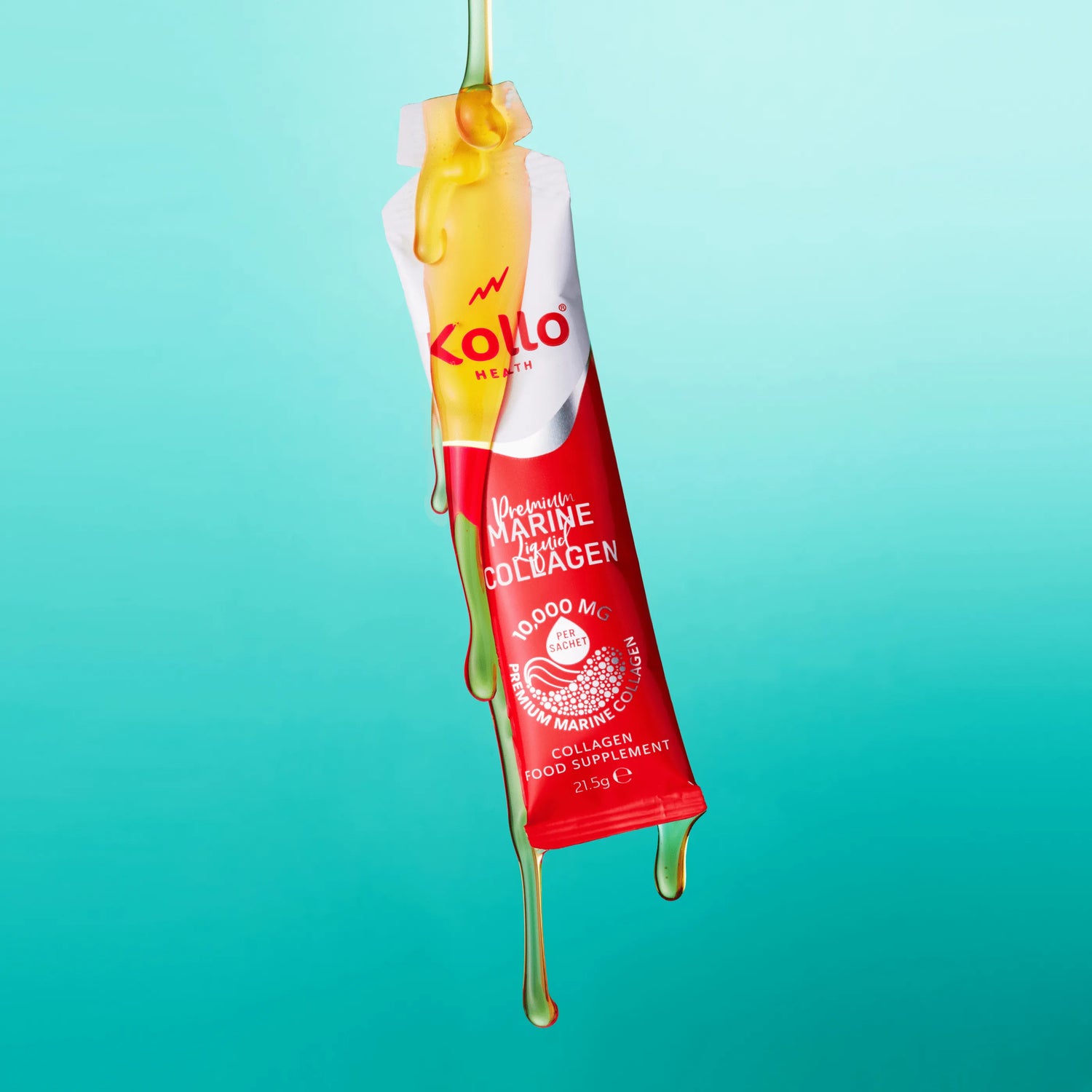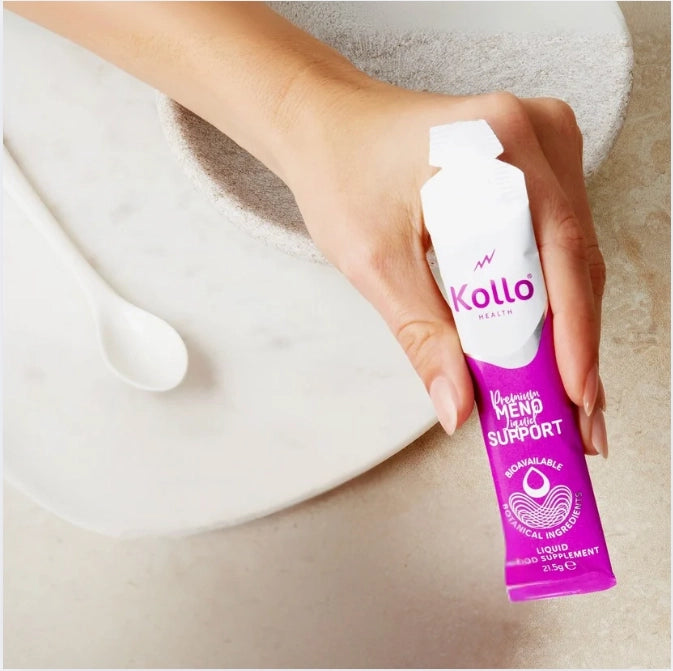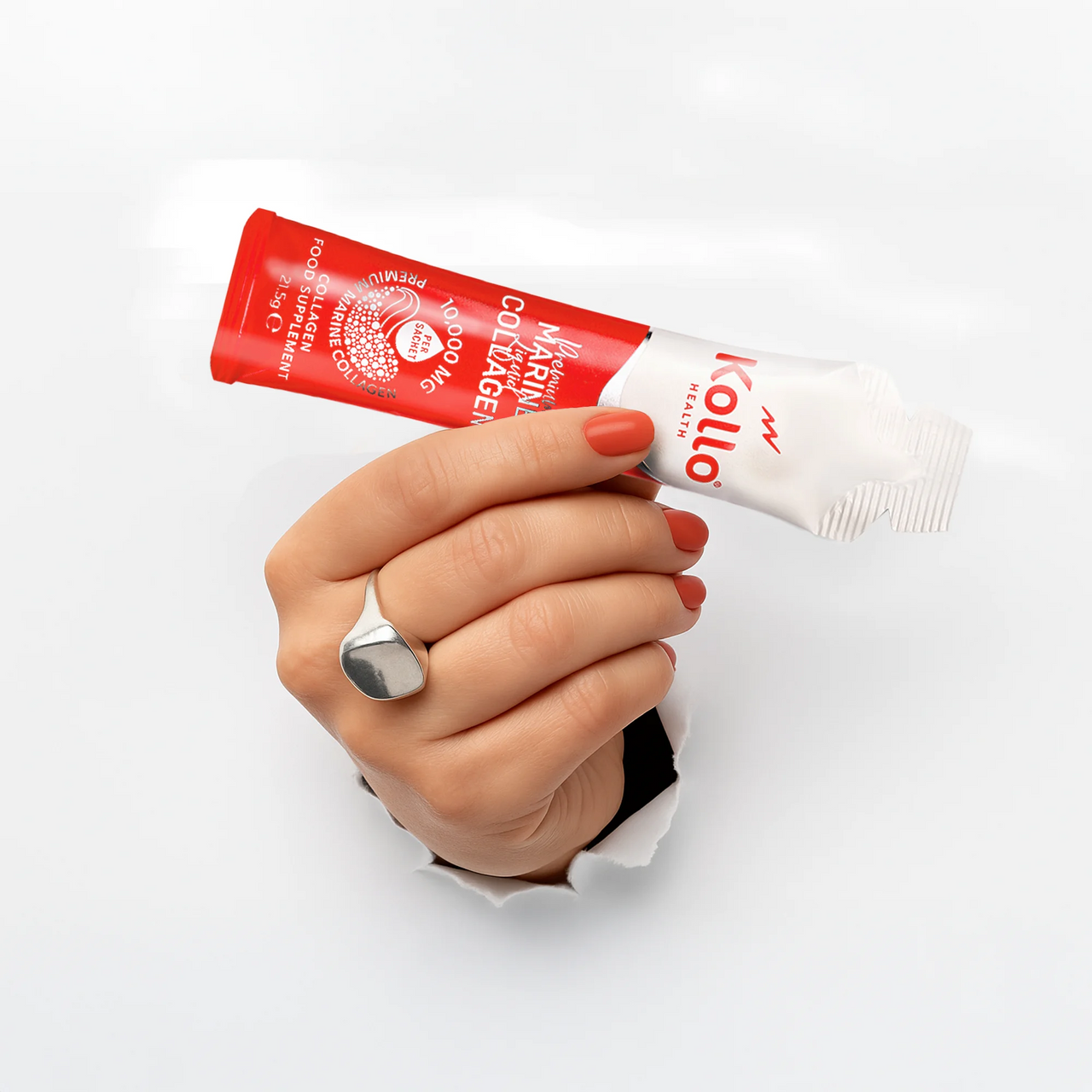What is meant by the term ‘undenatured collagen’?
When exploring the world of collagen supplements, you may well come across the term ‘undenatured collagen’. To denature a substance, you do something to it that changes its usual nature. You may add another substance to it, or you may change its physical properties through heat or subjecting it to certain chemicals.
Protein denaturation causes a change in a protein’s specific characteristics. With regards to the protein collagen, there can be benefits to doing this in a very specific way. You want the protein, and the amino acids within, to arrive in a way that makes it easy for your body to absorb and use them. Undenatured collagen consists of pure, complete collagen that is not broken down or contaminated in any way.
In this post, we will discuss everything you need to know about this.
Why is 'undenatured collagen' not ideal for collagen supplements?
Undenatured collagen has had nothing done to it. You would get it, in its purest form, if you ate fish scales or chicken cartilage. It is the collagen content of those animals’ bodies and the molecules are very large and cumbersome, composed of a triple helix of amino acids.
When you consume collagen, your body needs access to those amino acids. They will fuel your body’s production of endogenous collagen that can yield the anti-ageing benefits you want, like:
-
Healthier, firmer, better-hydrated skin
-
A reduction in the appearance of fine lines and wrinkles
-
Stronger, more voluminous hair and nails
-
Reduced swelling and discomfort in joints
-
More bone mass
The most important of the amino acids are glycine, proline and hydroxyproline. They are abundant in collagen, but there is a problem with undenatured collagen molecules. Their molecular weight makes their bioavailability low. In other words, your body will not be able to absorb the nutrients efficiently. It will take time to break down the molecule to release those amino acids. Moreover, many of them could pass right through your digestive system without entering the bloodstream.
Undenatured collagen is difficult to get from food because it is in undesirable meats. What's more, its low bioavailability is the reason it is not often used in supplements.
How can we improve upon undenatured collagen?
As you might expect, the solution for supplementation is a very specific form of denatured collagen. To make those amino acids more accessible, the goal is to unravel the triple helix into its component parts – smaller chains of amino acids. This would make those nutrients more accessible to your body.
However, it is important that the process to achieve this does not compromise the purity or integrity of the amino acids. The process used to denature collagen is hydrolysis. This involves water used in combination with either enzymes or acids. The enzymatic version is generally preferable. This is because it is less likely to damage or contaminate resulting hydrolysed collagen, or collagen peptides. The denatured collagen, once produced, can go into collagen supplements in a specific dosage.
These collagen peptides retain all the purity and integrity they would have had in the complete collagen molecule. But they are more accessible for your body. Once you consume them, they will enter your bloodstream fast with very little of the collagen content missing the mark. Here, your body can deploy those amino acids to produce new collagen and reap the benefits of collagen supplementation.
How important is purity and integrity of collagen peptides?
There are several concerns when it comes to impurity and damage of collagen peptides:
-
Contamination could result in harmful toxins entering the body.
-
Impurities could compromise the effectiveness of the collagen.
-
Damage to the collagen peptides could render them ineffective.
As noted in the previous section, contamination or damage to collagen can occur during the process of hydrolysis. The use of acids is a common cause of this. So too is poorly-executed processing or issues relating to the treatment of collagen peptides after production. Methods of preserving them can sometimes raise concerns about the integrity of the product. Thus, it is important to look for a supplier that is very transparent about its supply chain.
Contamination and damage can also occur at the point of extracting the collagen from the animal carcasses. Again, the extraction process can revolve around the use of acids or enzymes. The acid version can lead to contamination and damage to the final product. Look for collagen supplements that extract the undenatured collagen using enzymatic processes. This ensures maximum purity and integrity of the collagen.
Can the collagen source impact the purity and integrity?
In a word: yes. Collagen is usually a by-product of the farming industry. The undenatured collagen originates from parts of the animals (fish, cows, pigs, chickens, etc.) that are not desirable as food. So the farming methods used on these animals can have an impact on the purity of their bodies on a molecular level.
For example, studies involving farmed cattle have found that many consume GMO, high-protein diets with growth hormones and lots of antibiotics. These animals are more likely to have toxins present in the meat. These toxins include heavy metals, which are harmful for our organs when consumed in small doses for extended periods of time. Marine collagen can result in similar types of contamination, and it does affect the collagen molecules. But fish farming techniques often involve less of these harmful chemicals and exposure for the animals.
This is why marine collagen is so popular. If the fish are aquaculture farmed and the supply chain is traceable, you can be confident that the purity is high. Be sure to do your due diligence and check for excessive use of chemicals during farming. But there is less risk than there would be with animals farmed on land. Moreover, collagen from fish is the most bioavailable and very similar, on a molecular level, to human collagen.
Why choose Kollo as your collagen supplement?
We considered all the science discussed above very carefully in the development of Kollo. We settled on Naticol marine collagen peptides as our collagen source. Production of this collagen involves adherence to ethical considerations and a traceable supply chain. They use enzymatic processes for both extraction and hydrolysis. Thus, they preserve the purity and integrity of the original, undenatured collagen.
We build on this by only adding the highest-quality ingredients into our formula. The flavourings are natural and sugar-free, adding a delicious tropical taste to the liquid. And we choose a liquid suspension because it enables a consistent dosage and maximum bioavailability. When the hydrolysed collagen arrives in the body in a liquid, there is nothing for your body to break down. Thus, those amino acids get into your bloodstream as efficiently as possible.
Key advantages of Kollo
There are various things that make Kollo stand out from the crowd:
-
We have won multiple awards for our product
-
We supply a daily dosage of 10g premium-grade marine collagen peptides
-
Kollo is 'Informed Sport' certified
-
There are more than 2,000 5-star reviews of Kollo from verified buyers
-
Amazon lists Kollo as an ‘Amazon’s Choice’ product
-
ITV This Morning has featured Kollo alongside other leading collagen supplements
We have pulled out all the stops to make Kollo a world-class collagen supplement. The stories from our wonderful customers speak volumes about its efficacy. We put our passion and lust for life into everything about this brand.
Following the science was a big piece of the puzzle, but we also embraced the concept of delivering a great experience for our customers. It really shows in the things they have to say about Kollo.
Go all out with a pro-collage lifestyle
Do you really want to get the most out of your anti-ageing journey with collagen? If so, there are other things you can do alongside taking a collagen supplement. The first thing to do is to cut out behaviours that damage your collagen.
This means:
-
Avoid excessive sun exposure and wear sunscreen
-
Quit smoking and cut down your alcohol consumption
-
Lower your stress levels
-
Cut down on sugars and refined carbohydrates
Then you need to introduce more positive behaviours into your lifestyle. Taking Kollo is part of this, but you should also aim to eat a wide range of foods that supply proteins, vitamins and minerals to your body. Exercising more is a great way to strengthen the connective tissues that collagen goes to and also increase blood flow to them. And drinking more water will ensure you stay hydrated and keep all your bodily functions operating at an optimal level.
Learn more
We have packed our website with information about Kollo, collagen and everything relating to those things. We invite you to take a look around to better acquaint yourself with all there is to know about this rich area.
If you still have any questions, please head over to our ‘Contact’ page where you can get in touch. Our team is available via email or social media and we would love to hear from you.







